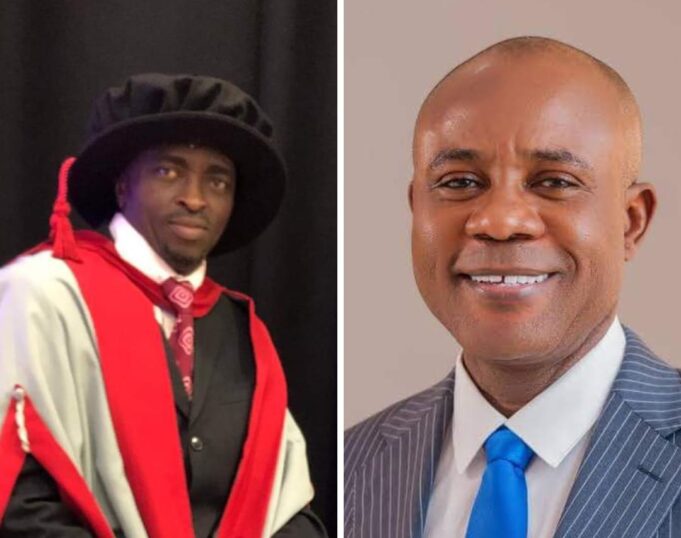I commend the governor of Enugu State for his efforts to reshape the state, particularly in education and infrastructure. He has introduced plans like the Smart School initiative and the establishment of an industry producing construction products.
Notable achievements, such as the completion of the Enugu International Conference Centre, reflect his commitment. However, some areas need urgent attention, particularly in revitalizing state-owned industries like Adani Rice Farm and ENTRACO, which could contribute to employment and the state’s economy. While much has been done, there is still more work to be done, and this is where we must encourage further progress.
That being said, it’s crucial that the state moves forward wisely. The recent proposal to launch a state-owned airline, Enugu Air, is one that brings both excitement and concern.
It would be the first of its kind in Enugu, and the idea of an airline based at Akanu Ibiam International Airport seems promising. However, before we celebrate, we must assess the long-term viability and sustainability of such a project.
One key concern is the scale of operations. Enugu is not yet a major air traffic hub that would attract a high volume of tourists or business travelers. The state’s appeal to visitors lies more in its natural resources and cultural heritage than in the means of transportation used to reach it.
Moreover, the number of local aircraft maintenance companies in Nigeria is limited, and it’s unclear if Enugu has the necessary infrastructure, such as an approved hangar and trained engineers, to sustain the operation of an airline.
If the state struggles to maintain its road transport system, as seen with ENTRACO, can it realistically maintain aircraft?
The cost of maintaining an airline fleet is another critical issue. Aircraft are expensive to purchase, with even the smallest passenger aircraft costing between USD 3.9 million and USD 1.1 billion.
The high cost of maintenance, especially in a country with an unstable exchange rate, poses a significant financial risk.
Furthermore, there’s the question of whether future administrations will prioritize sustaining this airline, given that many airlines worldwide, including private jet operators, are grounded due to high operational costs.
Instead of focusing on Enugu Air, I propose that the state invest in a more sustainable transportation infrastructure, such as an electric light rail system.
Enugu has several untapped energy resources, including six viable waterfalls that could generate up to 6 MW of electricity. This energy could be used to power electric trains connecting major cities like Oji River, Awgu, Nsukka, Uzo-uwani, Agbani, Udi, and Enugu metropolis.
A pilot project connecting two cities could be the starting point, and as more renewable energy becomes available, the rail network could be expanded.
Unlike an airline, which offers limited scalability, an electric rail system has immense potential for growth. If the rail system faces setbacks, the existing infrastructure, particularly the power lines used for the trains, could be repurposed for electricity supply to households and industries.
Additionally, electric trains and trams are environmentally friendly, energy-efficient, and offer a reliable means of transportation for both commuters and goods. For example, fresh produce from Nsukka could quickly reach Agbani, improving the economy and quality of life for residents.
Enugu State has the potential to become a model for sustainable urban development in Africa. By prioritizing electric transportation, the state could attract more tourists, improve the standard of living, and reduce emissions.
The infrastructure for electric trains would also create a smart city where visitors can seamlessly transition from the airport to the city center via a tram, improving the overall tourist experience.
In my own experience, when I visited Akanu Ibiam airport in 2022 with four foreign visitors, we faced challenges such as a complete blackout at the airport, leaving us vulnerable to taxi operators who almost robbed us.
The lack of a city shuttle or electric transport options highlighted the shortcomings of the state’s infrastructure. Enugu’s future lies in projects that are not just flashy but sustainable, scalable, and beneficial to the local population.
In conclusion, I urge the governor to reconsider the Enugu Air project and focus on a more viable and sustainable option: the Enugu electric-operated light rail line.
This initiative could transform Enugu into a model city in Nigeria and inspire other states in the Southeast to follow suit. With courage and vision, Enugu has the potential to become a hub of sustainable development in Africa, much like cities such as Oran (Algeria), Casablanca (Morocco), and Nyanga (South Africa).
Let’s invest in a future that benefits the people of Enugu, creating lasting infrastructure that will serve the state for generations to come.
Thoughts of Dr. Ike Eneje,
Ike Eneje is from Ngwo, a Canadian-Igbo engineer, energy economist, educator, and former IEEE Ambassador.

















